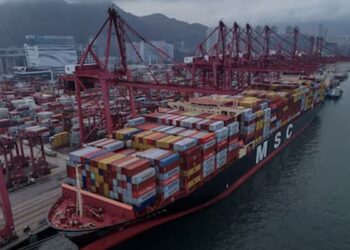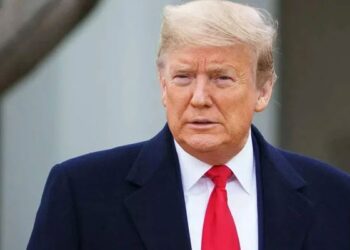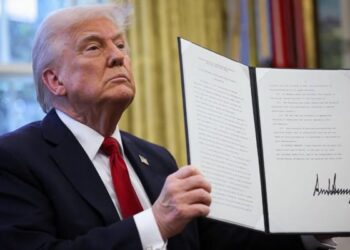U.S. Treasury Secretary Scott Bessent Comments on Trade Relations with China Amid Rising Tensions
April 14, 2025 – Buenos Aires, Argentina
US Treasury Secretary Scott Bessent departs the Economy Ministry building in Buenos Aires, noting recent loan negotiations between Argentina’s President Javier Milei’s administration and the IMF. — Reuters
- Bessent expresses belief that the U.S. and China can avoid economic separation.
- Anticipates more complexity in negotiations with China compared to other countries.
- Identifies China as the U.S.’s primary economic and military contender.
In a recent statement, U.S. Treasury Secretary Scott Bessent expressed his concerns regarding comments made by China’s commerce minister, who referred to President Donald Trump’s tariffs as a “joke.” Despite this, Bessent remains hopeful that a substantial agreement can be achieved, even as tensions escalate between the two economic powerhouses.
“There is definitely a significant agreement to be considered at some point,” Bessent shared during an interview with Bloomberg TV, addressing the potential for a decoupling of the world’s two largest economies. He emphasized, “Decoupling doesn’t have to happen; however, it is a possibility.”
Bessent indicated that negotiating a deal with China would present greater challenges compared to other nations, pointing out that “China is not only our largest economic competitor but also our foremost military adversary.”
The ongoing trade dispute has led to escalating confrontations, beginning when President Trump implemented tariffs that specifically impacted Chinese imports. This has resulted in U.S. tariffs on Chinese goods rising to 145 percent, while retaliatory tariffs imposed by Beijing on U.S. imports have reached 125 percent.
The American administration has delivered mixed signals regarding its objectives and the potential impact of tariffs on the global economy. Recently, the White House has appeared to ease some pressure by announcing tariff exemptions for certain electronic products, including smartphones and laptops, in which China plays a significant role in supply.
Nevertheless, President Trump and several senior aides clarified that these exemptions were misrepresented and would be temporary as new tariffs could still be applied to various items on the list. “Nobody is getting ‘off the hook’… especially not China, which has the worst trade practices against us!” he posted on his Truth Social platform.
Bessent noted that Trump’s tariffs are “not a laughing matter.” He pointed out the significant financial implications, stating, “These figures are large. I don’t believe anyone who understands their impact sees them as sustainable in the long term.”
In response, Chinese President Xi Jinping began a tour of Southeast Asia with a stop in Vietnam, where he warned that protectionist measures “will lead nowhere” and cautioned that a trade war would yield no winners. “We must bolster our resolve, oppose unilateral bullying together, and maintain the stability of the global free trade and supply systems,” Xi told Vietnam’s leader, To Lam.
Despite the escalating tensions, the White House affirms that President Trump remains optimistic about forging a trade agreement with China, although officials expect to hear from Beijing first. The trade conflict continues to exacerbate fears of an economic downturn, with the dollar’s value diminishing and investors as a result offloading U.S. government bonds, which are typically viewed as a safe investment.




